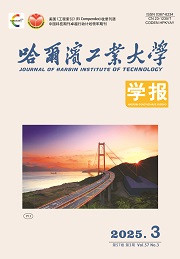| 引用本文: | 丁晶,关淑妍,赵庆良,高庆伟,赵冠舒,王琨.垃圾渗滤液膜滤浓缩液处理技术研究与应用进展[J].哈尔滨工业大学学报,2021,53(11):1.DOI:10.11918/202104049 |
| DING Jing,GUAN Shuyan,ZHAO Qingliang,GAO Qingwei,ZHAO Guanshu,WANG Kun.Research and application status of treatment methods of landfill leachate membrane concentrate[J].Journal of Harbin Institute of Technology,2021,53(11):1.DOI:10.11918/202104049 |
|
| |
|
|
| 本文已被:浏览 2191次 下载 1861次 |

码上扫一扫! |
|
|
| 垃圾渗滤液膜滤浓缩液处理技术研究与应用进展 |
|
丁晶1,关淑妍1,赵庆良1,2,高庆伟1,赵冠舒1,王琨1,2
|
|
(1.哈尔滨工业大学 环境学院,哈尔滨 150090; 2.城市水资源与水环境国家重点实验室(哈尔滨工业大学),哈尔滨 150090)
|
|
| 摘要: |
| 截至目前,作为垃圾渗滤液深度处理工艺之一的膜分离工艺,可保证垃圾渗滤液处理后达标排放,但同时将产生大量的膜滤浓缩液。浓缩液含有大量难降解有机污染物,若不能进行妥善处理处置,将会造成严重的二次污染。根据相关研究及工程应用案例,从工艺原理、应用效果、处理成本及技术发展角度,对渗滤液膜滤浓缩液处理工艺进行分类探讨,评述回灌法、物理处理法(浸没燃烧蒸发法和机械式蒸汽再压缩处理法)、化学处理法(焚烧、高级氧化和超临界水氧化法)、物化处理法(絮凝沉淀、吸附、膜分离和固化稳定化处理)等单元工艺和无膜/有膜等组合工艺的技术特点、现存问题及应用范围,最后总结不同条件下产生膜滤浓缩液的处理工艺路线,有针对性地提出渗滤液膜滤浓缩液处理的发展方向,期望可为垃圾渗滤液膜滤浓缩液处理工艺的深入研究与广泛应用提供技术参考。 |
| 关键词: 渗滤液膜滤浓缩液 处理处置 二次污染物 无害化 |
| DOI:10.11918/202104049 |
| 分类号:X703 |
| 文献标识码:A |
| 基金项目:国家自然科学基金青年基金(51908164) |
|
| Research and application status of treatment methods of landfill leachate membrane concentrate |
|
DING Jing1,GUAN Shuyan1,ZHAO Qingliang1,2,GAO Qingwei1,ZHAO Guanshu1,WANG Kun1,2
|
|
(1.School of Environment, Harbin Institute of Technology, Harbin 150090, China; 2.State Key Laboratory of Urban Water Resource and Environment (Harbin Institute of Technology), Harbin 150090, China)
|
| Abstract: |
| Up to now, membrane process has been adopted as one of main advanced treatment processes of landfill leachate to meet the requirement of discharge standard. However, a large amount of membrane leachate concentrate with more pollutants is produced, which will cause serious secondary pollution without proper treatment and disposal. In this work, various treatment processes of leachate concentrate from the aspects of principle, application effect, cost, and technical development were classified and discussed according to the published related studies and engineering application cases. The characteristics, existing problems, and application scope of recirculation, physical treatment (submerged combustion evaporation and mechanical vapor recompression), chemical treatment (incineration, advanced oxidation processes, and supercritical water oxidation), physical and chemical treatment (flocculation, adsorption, membrane separation, and solidification/stabilization), and coupled treatment processes with or without membrane were also reviewed. Finally, the treatment routes for different types of leachate concentrate were concluded, and the future prospect of leachate concentrate treatment was put forward, aiming to provide technical reference for further study and full-scale treatment of leachate concentrate. |
| Key words: leachate concentrate treatment and disposal secondary pollutants harmlessness |
|
|
|
|







